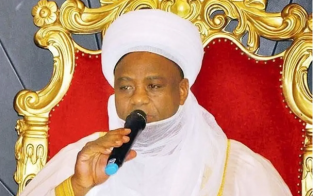In the wake of the brutal murder of 16 Northern travellers in Uromi, Edo State, former presidential aide and veteran journalist, Laolu Akande, has raised alarm over the rising feeling of helplessness among Nigerians due to what he describes as the failure of the country’s current security architecture to protect its citizens.
Speaking on the My Take segment of Inside Sources with Laolu Akande on Channels Television on Friday, Akande delivered a sobering reflection on the tragic event and its broader implications for Nigeria’s fragile social fabric.
“We were all struck by the despicable killing of travellers of Northern extraction going home from Rivers State to Kano State to join their families to celebrate the end of the Ramadan,” Akande said. “Then, tragedy struck at Uromi in Edo State where 16 of our dear citizens lost their lives, some in very gory circumstances.”
Akande stressed that the incident is more than just a case of insecurity — it is a reflection of deeper systemic failures. “If we must be honest with ourselves, there’s a gripping sense of helplessness among many Nigerians regarding the perceived inability of the current security architecture to protect them. And this has to change.”
He went on to highlight a critical issue that continues to fuel division and unrest: the lack of justice and trust within local communities. “There is also a worrying lack of sense of justice in many of our local communities. And we know that the absence of justice and the presence of mutual suspicion are bad especially in a multiethnic country like Nigeria.”
Akande called for comprehensive reforms across the justice and security systems, warning that the continued absence of equity and fairness will only worsen ethnic tensions and religious extremism. “Right from investigation to prosecution and all the way to the delivery of justice, we need urgent reforms that will offer confidence on a consistent basis so that we can begin to reorient ourselves away from the sense of ethnic oppression and religious extremism.”
His remarks echo a growing concern nationwide over the increasing frequency of violent incidents, especially those perceived to have ethnic or religious undertones, and the government’s slow response in addressing these challenges.
For many Nigerians, the killing of the 16 travellers is not just a tragic loss of life—it’s a symptom of a country in dire need of justice, reform, and unity.










